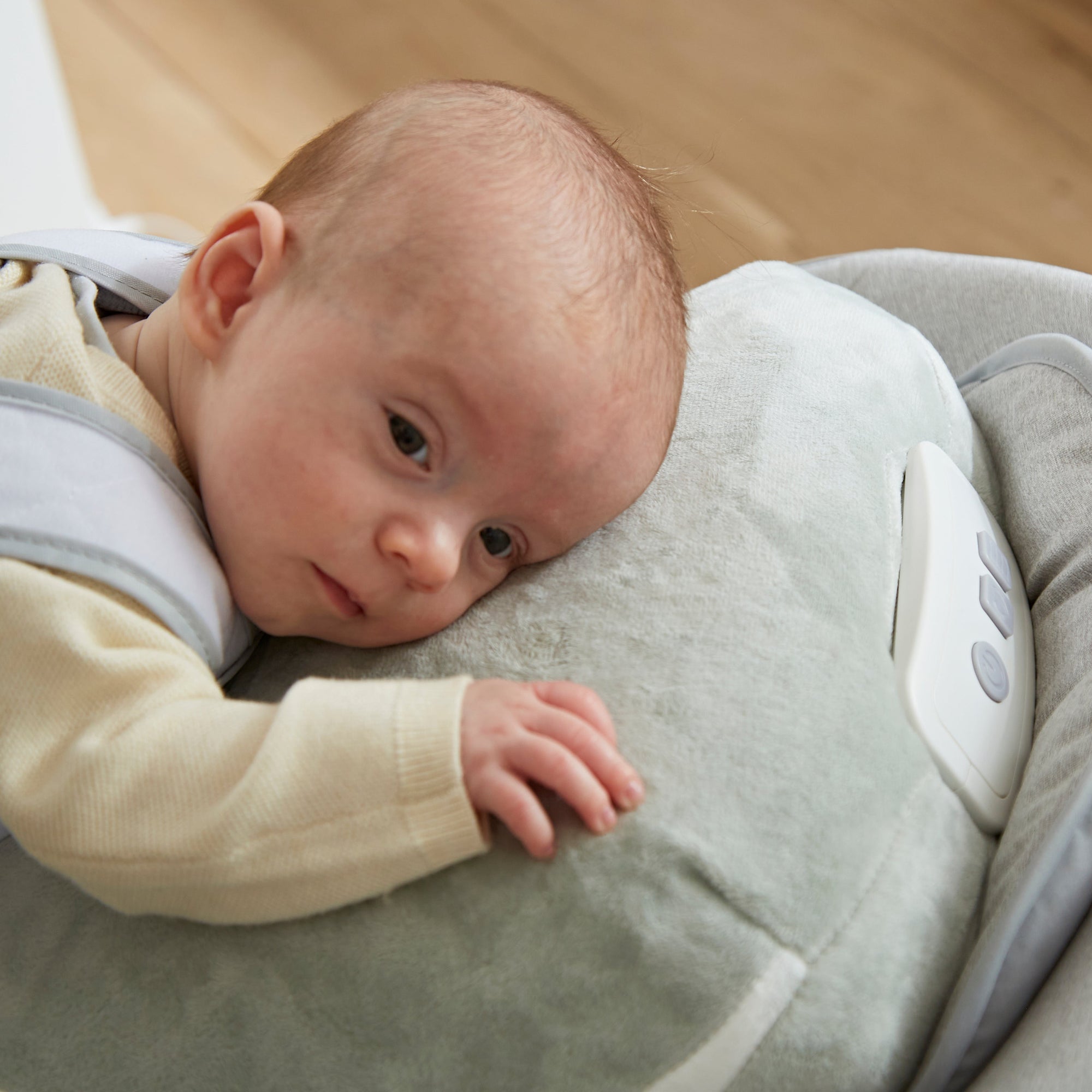It's not as easy to calm a baby as it sounds, especially if you're a frazzled parent who is surviving on minimal sleep. If you are struggling, we recommend trying these 5 simple tips to help calm a crying baby…
-
Discover the Cause
Babies cry for all sorts of reasons but if you can pinpoint a particular cause, you're halfway to successfully creating calm. If your baby has already had a nappy change, a feed and a nap, then you might want to know that reflux, baby colic or wind could be the cause of their discomfort. If so, there are plenty of ways you can address these problems.
-
Give Them a Cuddle
Skin-to-skin contact stimulates the release of a hormone believed to encourage bonding, called Oxytocin. Having skin-to-skin contact with a parent or caregiver will also help regulate the stress hormones, heart rate, respiratory rate and body temperature of an infant.
-
Recreate the Womb
The world can be a scary place, especially for babies who have undergone a drastic change in their environment. Using accessories like the Babocush can help to recreate the calming and reassuring environment of the womb, which will help to calm your baby in no time. You can successfully soothe and ease their distress by with the soothing heartbeat sound and gentle vibrations.
-
Use Sounds
Many parents and carers believe that silence will relax a baby and encourage them to sleep. However, this isn’t always the case. If your baby doesn't like a quiet environment, try to play sounds and music instead. When babies are in the womb, they’re exposed to constant rhythmic sounds, therefore recreating these can be a sure-fire way to calm a crying infant. Alternatively, white noise can be a successful way of slowing brain wave frequencies and calming your baby.
-
Try Movement
A common way to comfort babies is to rock your them gently from side to side. If that isn't working, you might need to try something else.
Many parents find that strapping their baby into their car seat and taking them out in the car is an effective way of calming them down. The rhythmic sounds of the engine and the bumps on the road are thought to be soothing for infants, which is why they often fall asleep on journeys.
Remember keep yourself and your baby calm.
Hearing a baby cry can be distressing, especially if you feel unable to recognise or effectively soothe the cause. You should take a deep breath and relax, knowing you have ruled out any potential medical triggers. If your baby isn’t hungry, uncomfortable or in need of a nappy change, they might just be having a grumble.
Infants will pick up on their caregiver’s moods and emotions, so keeping yourself calm may be the best way to soothe your them. Whether you’re practising attachment parenting or controlled crying; finding ways to relax yourself will help to soothe your baby and keep them calm in the long-term.
Struggling to soothe your crying baby and think they may have colic? You can read our blog post on how to soothe a colicky baby here.


